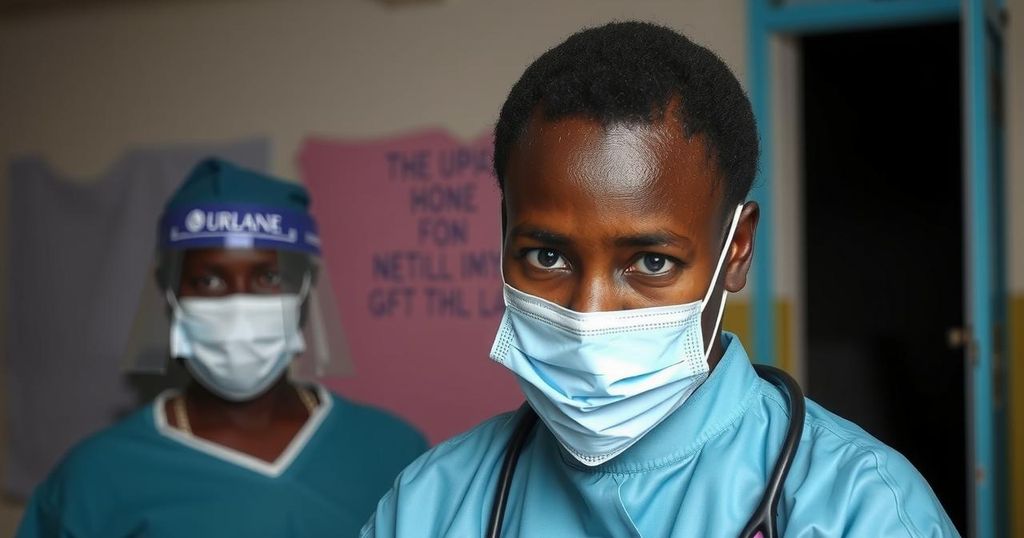Urgent Investigation of Mysterious Disease Outbreak in the Democratic Republic of Congo

A mysterious disease in the DRC has led to numerous fatalities, prompting urgent investigations by health officials. The challenges of diagnosing rare pathogens in low-resource settings complicate response efforts. Timely detection and coordinated surveillance efforts are crucial to managing outbreaks and safeguarding against future pandemics.
Recently, an unidentified illness has emerged in the southwestern region of the Democratic Republic of Congo (DRC), leading to numerous fatalities. Health officials are meticulously investigating this outbreak, considering endemic diseases, yet they are likely to face significant challenges due to the limited diagnostic capabilities in many low-income countries. Many clinical laboratories are only equipped to detect common pathogens, and the identification of rarer diseases often necessitates forwarding samples to specialized labs, potentially even those located abroad, which complicates timely diagnosis and response.
Understanding the scope and severity of this outbreak presents another challenge. The high mortality rate is concerning, but determining the accurate number of cases is difficult, as many infected individuals may not seek medical attention due to the scarcity of clinics, particularly in remote areas. Additionally, even those who do seek care may not be tested or diagnosed correctly due to insufficient resources. This lack of information hampers the assessment of the threat posed by such outbreaks, which may not be isolated incidents, considering the increasing frequency of new infectious diseases globally.
Contributing factors include climate change, urbanization, and deforestation, which enhance the risk of zoonotic diseases transferring from animals to humans.
In response to these challenges, initiatives such as the World Health Organization’s 7-1-7 initiative are being tested across various regions. This program aims to improve the speed of outbreak detection and response; however, there are concerns that this may still be inadequate for rapidly spreading infections. Moreover, enhancing the integration and coordination of existing surveillance mechanisms is essential. An initiative by the World Health Organization, Integrated Disease Surveillance and Response (IDSR), has demonstrated mixed success thus far.
Consequently, while numerous initiatives exist to bolster global health surveillance, their effectiveness will ultimately determine whether such efforts can avert future pandemics and respond efficiently to infectious disease outbreaks.
The emergence of a mysterious disease in the Democratic Republic of Congo underscores the critical challenges faced in low-income countries concerning disease detection and response. The DRC’s health system struggles with limitations in diagnostic capabilities, particularly in remote areas where access to healthcare services is scarce. This situation is exacerbated by complex factors leading to the rise of new infectious diseases, including environmental changes and population dynamics, which facilitate the transmission of diseases from animals to humans. The urgency of improving global health surveillance systems is reflected in various initiatives aimed at rapid detection and response to outbreaks, though these programs encounter numerous obstacles, such as delays in disease recognition and inadequate resources in impacted regions.
In conclusion, the ongoing investigation into the mysterious disease outbreak in the DRC highlights the need for enhanced health surveillance and rapid response capabilities in low-income regions. Despite various initiatives aimed at improving disease detection and emergency response, significant gaps remain that hinder effective action against emerging infectious diseases. Addressing these deficiencies is critical not only for managing current outbreaks but also for preventing potential future pandemics.
Original Source: www.downtoearth.org.in








